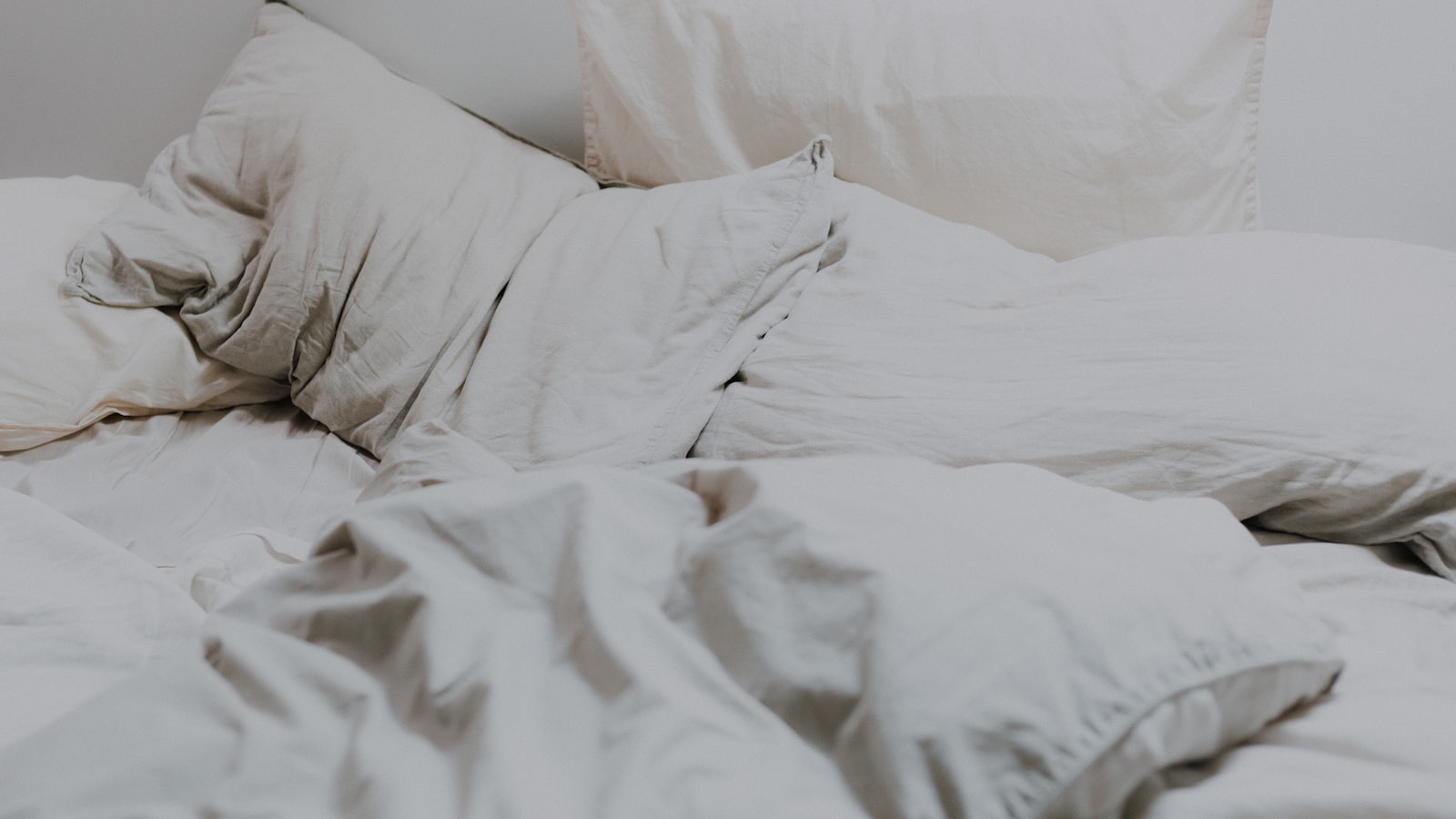Sleep is an essential part of our lives, and its quality directly impacts our overall well-being. As we seek ways to optimize our sleep patterns, the world of sleep tracking and analysis tools has emerged as a potential solution. These innovative methods offer a unique opportunity to gain insights into our sleep habits, providing valuable data that can contribute to a better understanding of sleep quality. In this article, we will explore the various methods used to monitor sleep and analyze the vast array of tools available for tracking and enhancing our sleeping experience. Let’s delve into the world of sleep tracking and analysis to uncover its potential benefits and challenges for improving our sleep quality.

1. Understanding Sleep Tracking: Exploring the Different Methods and Tools Available
When it comes to monitoring and improving our sleep, there are various methods and tools available that can help us gain valuable insights into our sleep patterns. These tools utilize advanced technology and proven techniques to track our sleep duration, sleep stages, and sleep quality. Let’s take a closer look at some of the common methods and tools used for sleep tracking:
- Wearable Devices: Wearable devices like fitness trackers or smartwatches have become popular options for sleep tracking. Equipped with accelerometers and heart rate monitors, these devices provide comprehensive data on sleep duration, sleep stages, and even sleep disturbances. They offer the convenience of wearing them while you sleep, without any additional effort.
- Sleep Apps: With the increasing use of smartphones, sleep tracking apps have gained popularity. These apps leverage the sensors present in your smartphone to analyze your movement and sound during sleep. Many of these apps also provide additional features like personalized sleep insights, smart alarms, and tips for improving sleep habits.
Moreover, other advanced sleep tracking tools include:
- Sleep Monitors: These devices are specifically designed for sleep tracking, providing accurate data on sleep duration, sleep quality, and even snoring. They typically consist of a sensor that is placed under the mattress, ensuring minimal disruption during sleep.
- Sleep Diaries: Traditional yet effective, sleep diaries involve manually recording your sleep patterns, such as bedtime, wake-up time, and any notable events or disturbances during the night. While it requires more effort compared to other methods, it allows for personal introspection and analysis of sleep habits.

2. Assessing Sleep Quality: Analyzing the Metrics and Data provided by Sleep Tracking Tools
When it comes to evaluating sleep quality, sleep tracking tools have become invaluable resources. These innovative devices and apps collect comprehensive data throughout the night, shedding light on various sleep metrics. By analyzing the wealth of information they provide, users can gain valuable insights into their sleep patterns and make informed decisions on how to improve their sleep quality.
One key metric that sleep tracking tools often measure is sleep duration. This metric indicates the total amount of time spent asleep, which is vital for understanding if you are getting enough rest. Additionally, sleep tracking tools provide data on sleep efficiency, which represents the percentage of time spent asleep compared to the time spent in bed. A higher sleep efficiency indicates better quality sleep.
- Sleep disturbances: Sleep tracking tools can identify disruptions and disturbances throughout the night, such as awakenings and changes in sleep stages. This data allows users to pinpoint potential factors that may be affecting their sleep quality, such as environmental noise or discomfort.
- Sleep stages: Advanced sleep tracking tools can provide insights into the different sleep stages, including light sleep, deep sleep, and REM sleep. Understanding the distribution of these sleep stages helps users comprehend their sleep architecture and identify any imbalances.
- Heart rate: Some sleep tracking tools can record heart rate data during sleep. Changes in heart rate during the night can indicate potential health issues or sleep disorders, allowing users to seek appropriate medical attention if necessary.
By harnessing the power of sleep tracking tools and analyzing the data they provide, individuals can take proactive steps to improve their sleep quality. Understanding sleep metrics like sleep duration, sleep efficiency, sleep disturbances, sleep stages, and heart rate can lead to informed decisions regarding daily habits and sleep environment modifications for a better night’s rest.
3. Improving Sleep Habits: Recommendations based on Sleep Analysis for Enhanced Sleep Quality
One of the key factors in achieving optimal sleep quality is to establish healthy sleep habits. Based on a comprehensive sleep analysis, we have curated a list of recommendations that can help you improve your sleep routine and enhance the quality of your sleep. By incorporating these habits into your daily life, you can experience more restful and rejuvenating sleep.
To begin with, it is essential to maintain a consistent sleep schedule. Aim to go to bed and wake up at the same time every day, including weekends. This helps regulate your body’s internal clock and promotes a more efficient sleep-wake cycle. Creating a relaxing bedtime routine can also signal your body that it’s time to unwind. Consider activities such as reading a book, taking a warm bath, or practicing deep breathing exercises before bed.
- Avoid consuming caffeine or nicotine close to bedtime, as they can disrupt your ability to fall asleep.
- Minimize exposure to bright screens, such as those on smartphones or tablets, at least an hour before bed. The blue light emitted by these devices can interfere with the production of melatonin, the hormone that regulates sleep.
- Create a sleep-friendly environment by keeping your bedroom cool, quiet, and dark. Invest in comfortable bedding and a supportive mattress to ensure optimal comfort.
- Engage in regular physical activity during the day, but avoid intense exercise close to bedtime as it can keep you alert and make it difficult to wind down.
By implementing these recommendations, you can establish healthier sleep habits that may contribute to improved sleep quality, leaving you feeling more refreshed and energized throughout the day.
4. Maximizing the Benefits: Integrating Sleep Tracking and Analysis Tools into Your Daily Routine
With our modern lifestyles becoming increasingly busier and more demanding, it’s crucial to prioritize sleep and ensure its quality. Thankfully, advancements in technology have led to the development of sleep tracking and analysis tools that can assist in optimizing your sleep patterns. By incorporating these tools into your daily routine, you can take a proactive approach towards achieving better sleep and reaping the numerous benefits that it brings.
One of the primary advantages of integrating sleep tracking and analysis tools is gaining significant insights into your sleep patterns and habits. These tools utilize sensors or wearable devices to monitor various aspects such as sleep duration, sleep stages, and even heart rate. The collected data is then analyzed, providing you with comprehensive reports and visualizations. By reviewing these reports, you can identify trends, understand your unique sleep needs, and make informed decisions to enhance the quality of your sleep.
- Track and improve your sleep duration by setting personalized goals.
- Identify potential sleep disruptors or habits that negatively impact your sleep quality.
- Discover the most optimal times to wake up or go to bed based on your sleep cycles.
Additionally, sleep tracking and analysis tools often come with helpful features designed to promote healthy sleep hygiene. These features may include bedtime reminders, relaxation exercises, or smart alarms that gently wake you up during your lightest sleep stage. By utilizing these features, you can establish a regular sleep schedule and create a bedtime routine that encourages relaxation, making it easier to fall asleep and wake up feeling refreshed.
To Conclude
In conclusion, sleep tracking and analysis tools have emerged as promising methods to monitor and improve sleep quality. With advancements in technology, individuals now have access to a wide range of options for tracking their sleep patterns and understanding the factors that influence their restfulness. Whether using wearable devices, smartphone applications, or traditional sleep diaries, these tools offer insights into sleep duration, quality, and disruptions.
By consistently tracking and analyzing our sleep patterns, we can identify potential sleep issues and make informed decisions to enhance our well-being. These tools can help us recognize the impact of lifestyle choices, such as caffeine intake and exercise, on sleep quality, ultimately enabling us to make positive changes. Furthermore, individuals with existing sleep disorders or medical conditions can benefit from the objective and detailed data provided by these tools, assisting healthcare professionals in developing personalized treatment plans.
However, it’s important to note that sleep tracking and analysis tools should be used as aids in understanding and improving sleep quality rather than definitive diagnostic tools. Their accuracy and reliability may vary, and they do not replace professional medical advice. It is always recommended to consult a healthcare professional for a comprehensive assessment and diagnosis of sleep-related issues.
As technology continues to evolve, sleep tracking and analysis tools are becoming more sophisticated, empowering individuals to take control of their sleep health. By harnessing the power of data and insights, we can strive for a better night’s sleep, leading to improved overall well-being and productivity during the day.
The importance of a good night’s sleep is undeniable, yet it is one of the most neglected aspects of health and wellness. Fortunately, the growing number of sleep tracking and analysis tools available in the market is making it easier for people to gain insight into their sleep health. This article will explore the current state of sleep tracking technology and explain how these tools can help monitor sleep quality and ultimately improve overall sleep health.
Sleep tracking is a type of technology used to monitor and analyze the quality of one’s sleep. The devices that enable this type of monitoring can range from wearable sleep trackers to smartphone apps and even dedicated sleep tracking hardware. These devices measure important signals such as heart rate, respiration rate, body movements, body temperature and sleep stages to get an accurate picture of one’s sleep quality.
The data gathered from sleep tracking technology is then used to gain insight into the quality of one’s sleep. This data can be used to create a detailed overview of the user’s sleeping habits, as well as provide personalized advice on how to improve sleep quality. The data can also be used to recognize potential patterns and triggers that might be negatively affecting one’s sleep.
In addition to sleep tracking, many of the available tools also come with analysis and insights features. These are used to help users identify sleep-related issues such as poor sleep quality, insomnia, sleep apnea, and restless legs syndrome. Such tools can also be used to create sleep goals and provide personalized recommendations on how to reach those goals.
Sleep tracking and analysis tools have revolutionized the way people manage and monitor their sleep health. With these tools, users can now gain a more comprehensive understanding of their sleep cycles and take action to address any issues that might be affecting their rest. With the right tools in place, one can work towards achieving better sleep and improved overall health.







